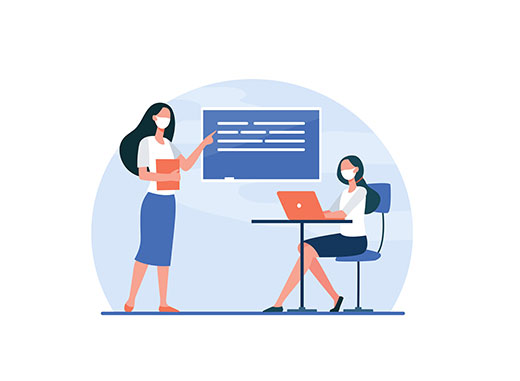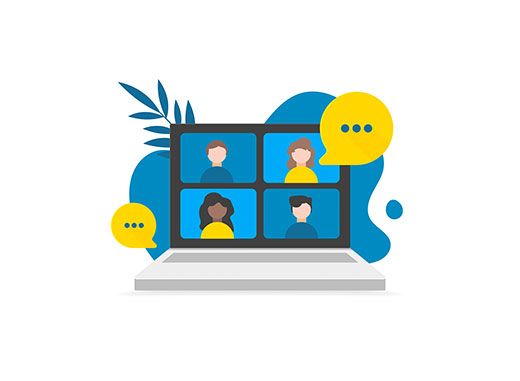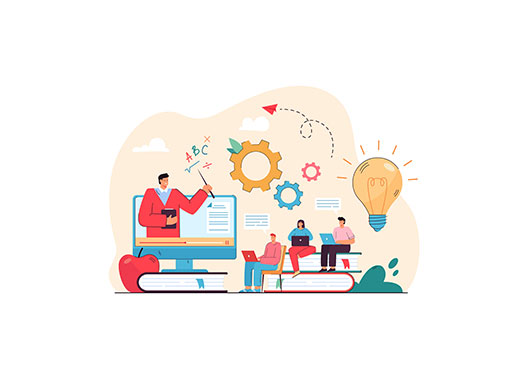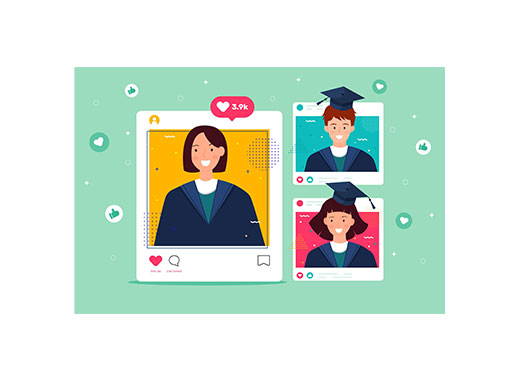How it Begun?

Covid-19 Affecting Student Learning
When pandemic strikes, it leads to closure of public and private facilities as well as creates uncertainty in major aspects of learning at schools, institutions and Universities. Many students remain in their hometowns or home countries where it is almost impossible to experience campus life. Thanks to the internet, in this day and age, we are still able to continue learning via online platforms and virtual classroom. However, students’ internet connection may not be 100% stable, not to mention those who live in rural areas. Real time virtual classroom is still not a perfect solution for education today.
Covid-19 Impact On Education
Oasis LecturePortal offers a platform that hosts a large variety of course contents with well recorded interactive lecture video, constantly evaluated by qualified educators (Lecturers & Professors) around the world.

Preparing Educators & Academia For The Time Of Global Pandemic And Beyond
Oasis LecturePortal in this case opening a door for new edge education delivery methodology, bridging among Academia, Educators and students with a flexible learning platform anywhere and anytime.

Re-Envisioning Learning With Technology
In Oasis LecturePortal, we share technology and methodology which is best for today’s education method demand. A new era not using the only whiteboard, but multimedia presentation is a good example. Educator should apply new technology and compile your knowledge in a singular format, and let Oasis LecturePortal bring it up to the world for you.
Technology with Oasis LecturePortal will bring the work of an educator to the Academia front. Minus all the interview and uncertainties in human behaviour, Academia will only assess and agree with the quality works for the best of their students. No classroom running cost, no human resourcing cost. A guaranteed course run for the rest of the semesters to come before a more interesting course is chosen to be subscribed.
Technology with Oasis LecturePortal will bring the work of an educator to the Academia front. Minus all the interview and uncertainties in human behaviour, Academia will only assess and agree with the quality works for the best of their students. No classroom running cost, no human resourcing cost. A guaranteed course run for the rest of the semesters to come before a more interesting course is chosen to be subscribed.
Re-Imagining The Future Of Skill: What Do Student Think Today?
Remember back in time where campus life was a great look after for students? But classroom experience is never a good preference. Today students spent more time looking at screens rather than the physical appearance of their lecturers. Texting and emailing rather than meeting face to face with educators to discuss course works and assignment. Having an exciting mood in the evening rather than a drowsy afternoon in the class. Students’ behaviours are changing and adoption on flexible timing is a preference. Hence, learning anytime, anywhere is the future.


Education Methodology Transformation
In end 2020, a survey showed an approximately 75% of the Academia, educators, parents and students preferred the new norm, 20% of them looking forward a hybrid environment and only 5% would like to go back to before pandemic ways.
Accept where students are going back to campus for activities such as laboratory and practical assignments, sports, social activities; the lecturing sessions are gradually to be reduced, not eliminated, at least for now. Interactive and interesting autonomous teaching soon replacing boring and less interesting face to face or virtual online classroom. These are transitional. Until then, the new norm is pointing toward autonomous learning with open pre-recorded teaching video contents.
Accept where students are going back to campus for activities such as laboratory and practical assignments, sports, social activities; the lecturing sessions are gradually to be reduced, not eliminated, at least for now. Interactive and interesting autonomous teaching soon replacing boring and less interesting face to face or virtual online classroom. These are transitional. Until then, the new norm is pointing toward autonomous learning with open pre-recorded teaching video contents.
